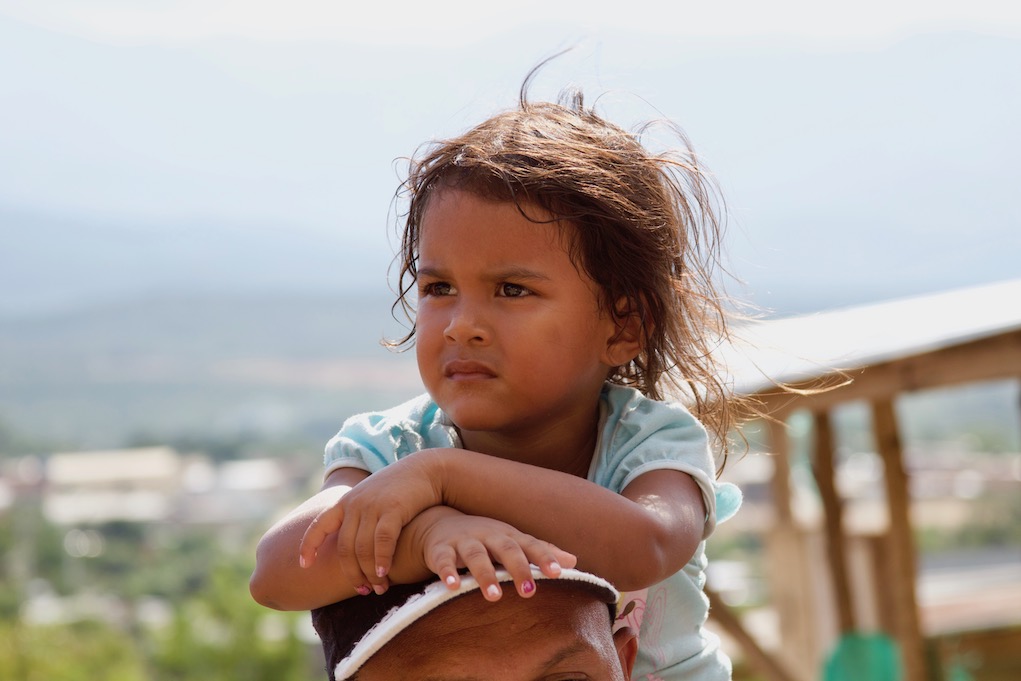There is currently no end in sight to the refugee crisis changing the face of Latin America. In Venezuela – what used to be one of the richest economies not only in the region, but the world – more than 3 million have been reduced to leaving the country as an unparalleled economic crisis brings the country to its knees. And while there is no armed conflict taking place, this crisis is certainly a humanitarian one – and a socioeconomic disaster of unprecedented magnitude. The world has yet to come to terms with its gravity, just as President Maduro is sworn in for a second term and unimaginable immiseration is on the horizon.

I travelled to Cúcuta, Colombia, on the border with Venezuela to meet refugees and understand the gravity of the crisis that threatens to destabilize Latin America with each passing day. Every refugee I met described the situation in their country as desperate. As many as 40,000 Venezuelans a day cross the Simon Bolivar bridge to access basic services and goods in Colombia, some 5,000 of whom do not return. The forecasts for 2019 are dire: already holding the dire accolade of the world’s highest inflation, it is expected to balloon to an inconceivable 10 million percent. The UN has estimated that over 5 million refugees will be displaced – eclipsing the Syrian refugee crisis. 8 out of 10 Venezuelan households are already food insecure, and in several parts of the country malnutrition rates for children near or surpass World Health Organization emergency thresholds. Experts calculate that the current conditions are so bad that even if the Maduro government were to put all of its net income from oil — Venezuela’s main and almost only export, which is publicly owned — to feed the poorest of the poor, there would still be a substantial portion of the population who would go hungry, if not continue to starve, and forced to emigrate.

While in Colombia, I spoke with parents who worked three jobs to afford any food for their children as prices of a loaf of bread double or even triple within the span of a week, former professionals forced to sleep in the street with their children. I met cancer patients forced to suspend life-saving treatment as the healthcare system falters; Venezuela is now also the only middle-income country in the world where HIV patients are forced to discontinue their antiretroviral treatment, with previously-eradicated diseases like measles and malaria making a record comeback. I met heavily pregnant women who made the journey to Colombia on foot in order to give birth in the presence of a doctor and medical equipment, lest they have to do so without any assistance at all. With economic conditions continuing to plummet and remittances a lifeline, families are forced to separate across borders at five times the emergency average.

The peculiarity of this crisis, much like the Central American displacement crisis, is its proximity to the American doorstep. Unlike many rich countries, which have been closing their doors to migrants and refugees, Venezuela’s neighbors are remaining open. The situation is however tenuous: recent moves to limit migration at the borders of Peru and Ecuador and growing violence and xenophobia in Brazil – including its threat to pull out of the UN migration pact – will test Colombia’s resolve. Should Venezuela’s neighbors buckle under the pressure, vulnerable Venezuelans will have no choice but to potentially travel across Central America, Mexico, and onto the United States in search of safety. The European crisis of 2015 should serve as a cautionary tale on the failures of short-term political strong-arming and the absence of a long-term, regional response.

Governments across South America as well as international donors must step up their support to prevent catastrophe. The Government of Colombia would do well to ensure Venezuelans have access to documentation and basic services of which they are in dire need. In the US, the introduction of a bipartisan bill by Senators Menendez and Rubio to grant Temporary Protected Status (TPS) to Venezuelans in the U.S. is a promising recognition moral and humanitarian obligations. But this crisis does not just call for policy, it calls for humanity. In Colombia, ordinary citizens are making welcome a reality, opening their homes and hearts to Venezuelans who share our same human desire for safety and security. This crisis is a clarion call to stand with refugees and asylum-seekers across the Americas – voting into power those who support them and vocalizing our opposition to those who would build walls to keep them out instead. Hiring them, donating to organizations that make a difference on the ground, myth-busting where ignorance and misinformation runs unquestioned. Now is the time to act in solidarity with fellow human beings in need at our doorstep.












